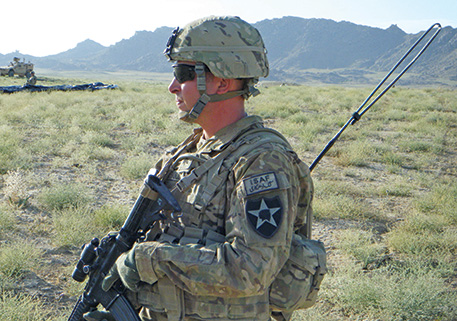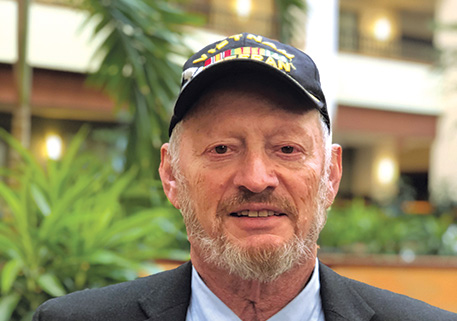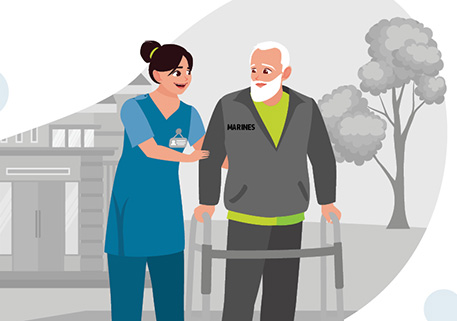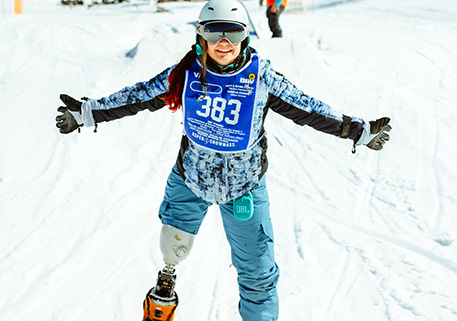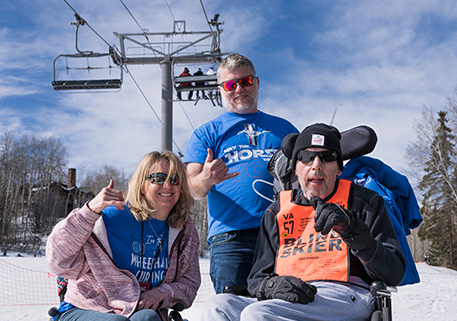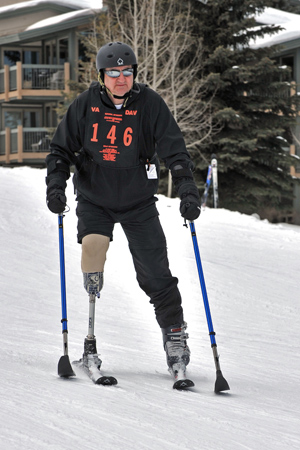 Five months into a deployment to Vietnam, 21-year-old Bill Caywood lost his right leg below the knee to a booby-trap. If you would have told him then that nearly a half-century later he would be skiing down a mountain, he would never have believed you.
Five months into a deployment to Vietnam, 21-year-old Bill Caywood lost his right leg below the knee to a booby-trap. If you would have told him then that nearly a half-century later he would be skiing down a mountain, he would never have believed you.
But it is 2018, and the former soldier is returning to the DAV and VA co-hosted National Disabled Veterans Winter Sports Clinic in Snowmass, Colo., to challenge himself on the slopes.
“Once I was injured I felt like I couldn’t do anything like skiing,” said Caywood. “Now I have been to the clinic more than 10 times. It’s exciting to come back every year and do a little more than I did the year before.”
Caywood didn’t attempt winter sports until he was about 50 years old.
“I was apprehensive when I tried it, but then once I got the hang of it, it became fun – even life-altering,” explained Caywood, who skis standing and uses a prosthetic leg specially made for skiing, furnished through the VA.
Skiing quickly became a family affair for Caywood.
“I got my son skiing, and so my wife didn’t want to be left out, so she started doing it, too,” said the Greenwood, Ind., native who skis at a nearby slope the rest of the winter. “We do it as a family every chance we get.”
At the Winter Sports Clinic, Caywood experiences a different sense of family.
“You feel camaraderie seeing everybody doing different activities with various levels of expertise,” explained Caywood. “Some people are experts and some are just learning. It’s pretty neat.”
Caywood has long felt at home with fellow veterans. He served as a DAV benefits advocate in Indianapolis for 15 years, ensuring his fellow veterans received the compensation they earned.
“I felt like it would be rewarding to assist other veterans, and help them change their life for the better,” said Caywood.
Now that he is retired he still has some insight for younger veterans.
“I would tell other veterans not to hesitate and to stay active,” said Caywood, who wishes he had found adaptive sports sooner. “Go for it—whether it’s skiing, golf, rock climbing—whatever. Don’t get discouraged. You can do it.”
Once Caywood has finished pushing himself in the mountains of Colorado, he is considering another VA and DAV co-hosted adaptive sporting event—the National Disabled Veterans TEE Tournament in Iowa. Caywood stresses the importance of staying active—regardless of illness, injury or disability.
“[Through adaptive sporting events] you can take your experiences back home and you can have a positive effect on yourself, your family and others,” said Caywood. “Once you can accomplish something you feel like you can keep moving on to another level and keep on building on your successes.”
About the event: Co-hosted by DAV and the U.S. Department of Veterans Affairs, the National Disabled Veterans Winter Sports Clinic promotes sports therapy and rehabilitation through adaptive Alpine and Nordic skiing, rock climbing, wheelchair self-defense, sled hockey, scuba diving and other adaptive sports and activities. The five day event in Snowmass, Colorado is a world leader in adaptive winter sports instruction for ill and injured Veterans and their families. Be inspired at wintersportsclinic.org


